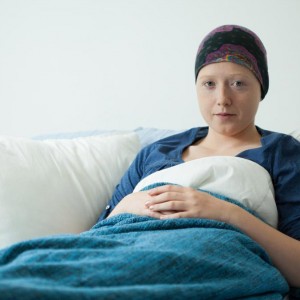
New Research Finds That Routine Breast Cancer Tests Lead to Unnecessary Mastectomies and Chemotherapy – an article from Cancer News.
This article may temper the celebrity-endorsed enthusiasm for prophylactic mastectomies for those with BRCA mutations. In addition, another study out of Duke Cancer Institute followed women with a BRCA mutation who had been diagnosed with ovarian cancer, with one group having prophylactic mastectomies, and the other group receiving routine screening (mammograms/MRIs); you can read the article here.
Results: For women diagnosed at any age with BRCA 1 and 2 gene mutations and within the first four years after ovarian cancer diagnosis, prophylactic mastectomy was associated with a negligible gain in survival. For women diagnosed at age 60 or older, regardless of time since ovarian cancer diagnosis, the gain in survival months was also negligible. For women diagnosed at age 40 to 50 with BRCA 1 and 2 mutations and at least five years after an ovarian cancer diagnosis, the procedure was associated with a survival benefit of two to five months.
Bottom line: Although prophylactic mastectomy in BRCA gene mutation carriers has shown to decrease breast cancer incidence, the data does not confirm an increase in survival.
healthyliving June 11th, 2019
Posted In: cancer care, Cancer Prevention
Tags: breast cancer, cancer, chemotherapy, mastectomy, new research, research, study

healthyliving May 28th, 2019
Posted In: cancer care
Tags: antifungal, antifungal agent, breast cancer, cancer, colorectal cancer, III NSC lung cancer, itconazole, lung cancer, NSC lung cancer, ovarian cancer, prostate cancer

More breast cancer patients can safely forgo chemotherapy: Study – an article from Science Daily.
healthyliving April 9th, 2019
Posted In: cancer care
Tags: breast cancer, cancer, chemo, chemotherapy

“Circulating Tumor Cells Predictive of Adjuvant Radiotherapy Benefit in Early Breast Cancer” – an article from Cancer Therapy Advisor can be accessed here.
This article validates what I have been proposing for quite some time; we should be checking for circulating tumor cells (CTCs) in early stage cancer.
In the US, we have a test called CellSearch, to search for CTCs in breast, prostate, and colorectal cancer. This test is FDA approved to help physicians make clinical decisions in patients with metastatic breast, prostate, and colorectal cancer.
We know the greater the number of CTCs, in a patient with metastatic cancer, the worse the prognosis. This study found that approximately 20% of patients with early stage breast cancer had CTCs. This study also showed that more aggressive treatment, adding radiation therapy, in those with CTCs, improved survival.
One of my mantras has always been, “the practice of medicine lags far behind the science of medicine.” This scientific data can and should be applied to the practice immediately. On early stage cancers, we should be checking for CTCs. If we are dealing with breast, colorectal, or prostate cancer, we can use the CellSearch test for those in the U.S. If it is a different type of cancer, we will need to send the patients’ blood outside of the country (such as a lab in Germany), where they test 6 other genetic markers for CTCs. If the patient has early stage cancer and CTCs, in my opinion, the adjuvant or neoadjuvant treatment should be continued until the CTCs are zero.
healthyliving February 7th, 2019
Posted In: cancer care
Tags: breast cancer, cancer, cancer care, radiotherapy, tumor